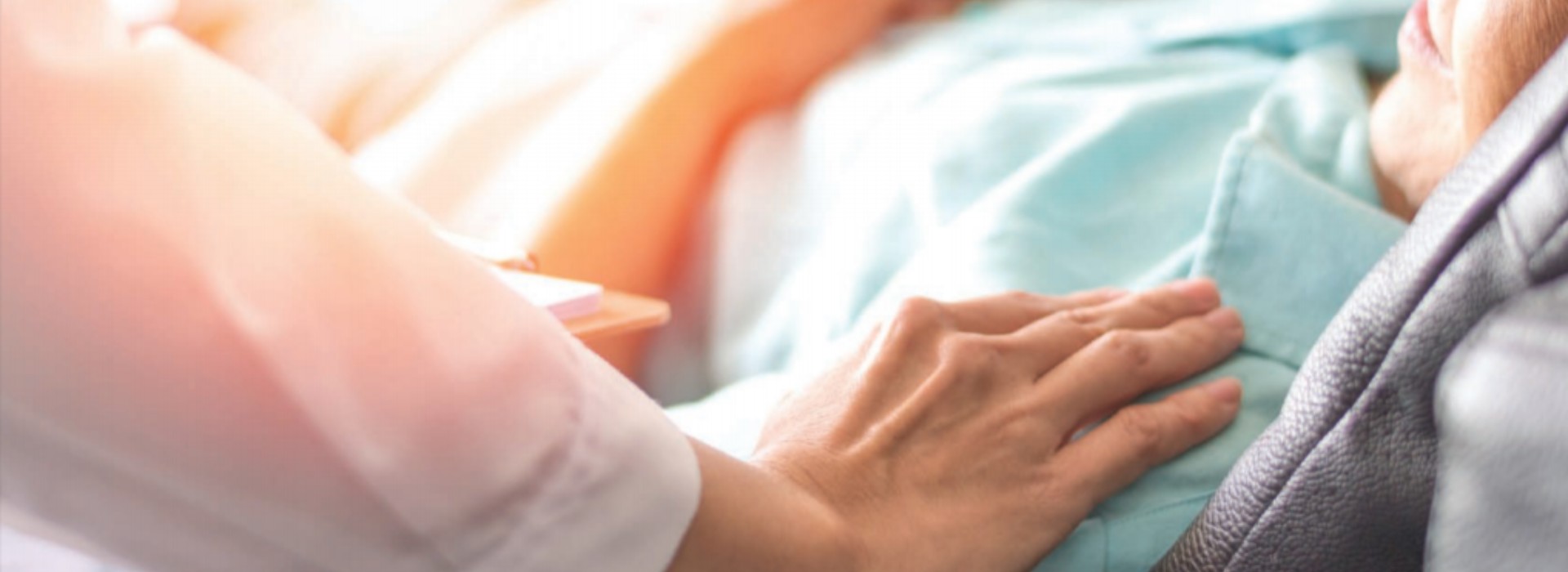
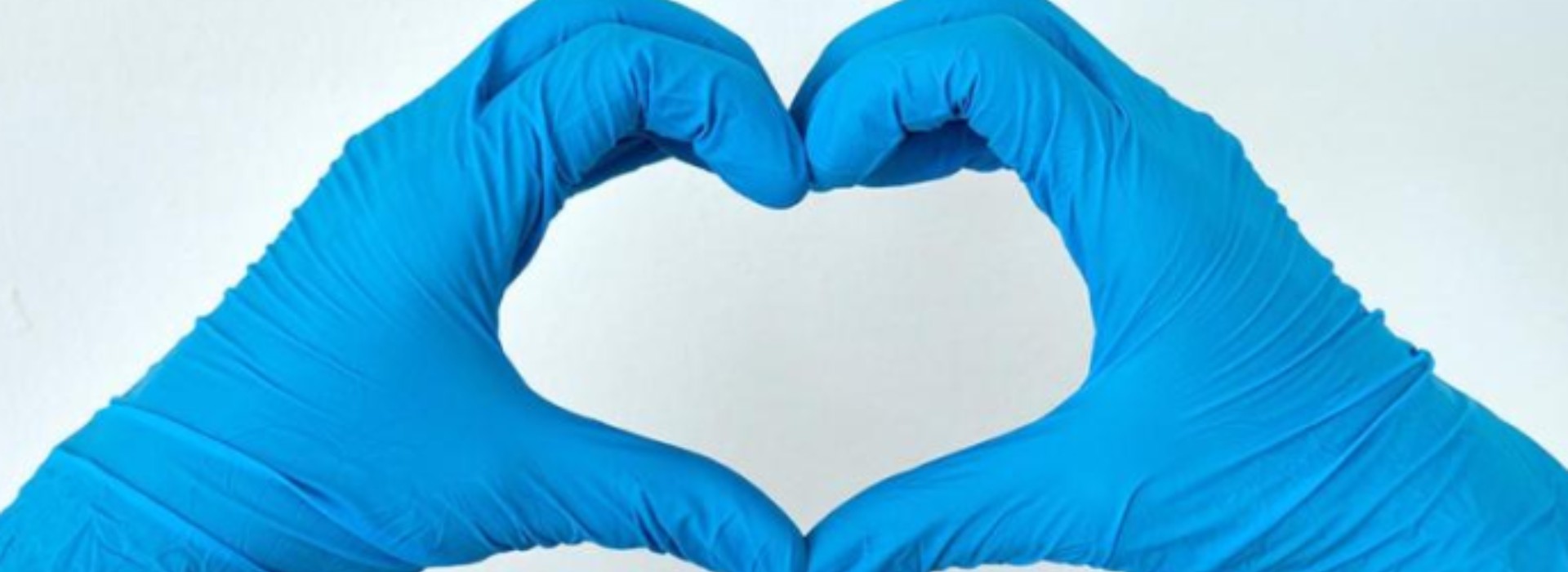
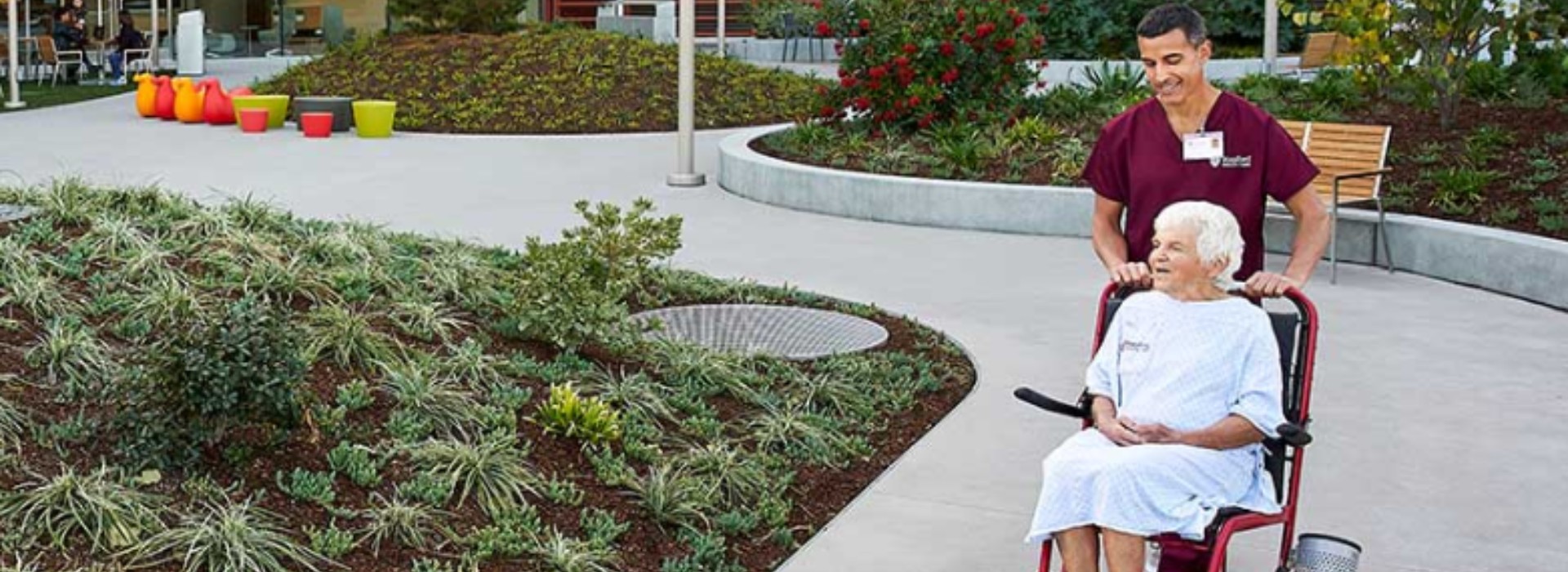
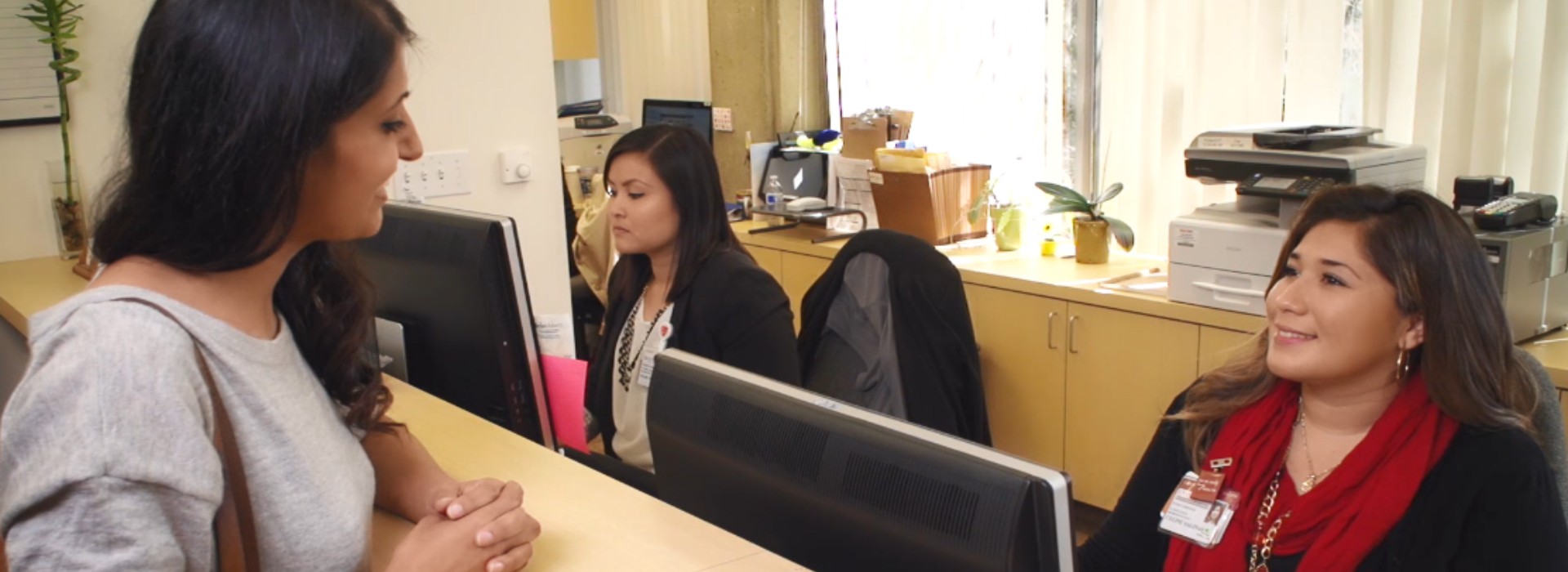
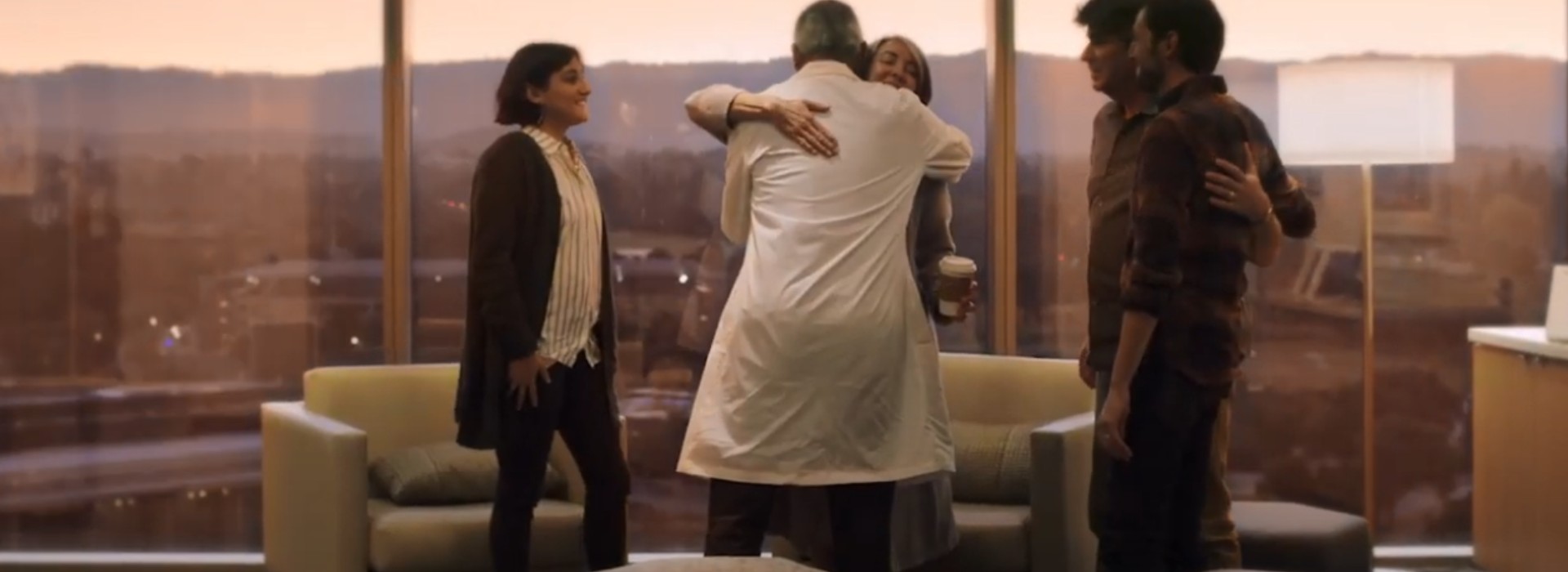
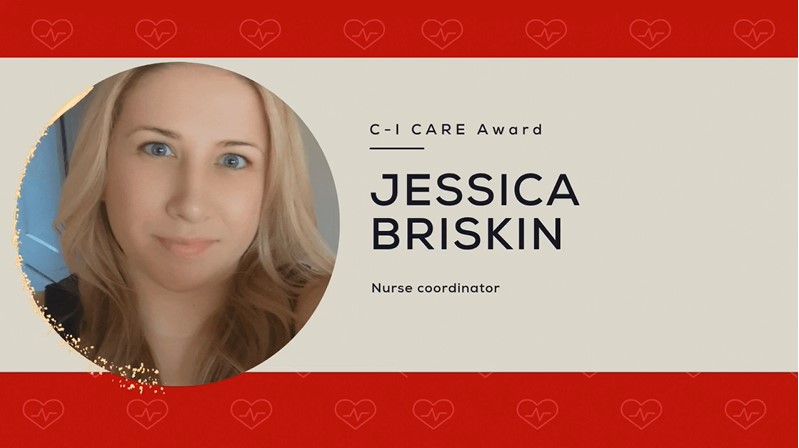
The June C-I-CARE award recognizes Jessica Briskin, a nurse coordinator in the organ acquisition and lung transplant unit. She personally ensured her patients received the best care, along with their crucial medications, when they needed them. In health care, it is often the actions taken behind the scenes that yield the most significant impact on patient outcomes. Briskin embodies this principle through her unwavering commitment to patient advocacy and care.
The nomination, submitted by her former colleague, Tojo Chemmachel, RN, described two examples of Briskin’s actions that highlight the essential role of compassion in nursing. During one of Briskin’s shifts, a patient urgently needed their medication. Rather than waiting for the usual process, Briskin personally went to the pharmacy to expedite the medication and delivered it to the patient herself, ensuring there was no lapse in the patient’s care.
“Jessica’s proactive approach and dedication to seamless care delivery exemplify the patient-first mindset that defines excellence in nursing,” Chemmachel said.
“To me, going to the pharmacy to pick up a medication for my patient was a ‘no-brainer,’” Briskin said. “I wanted him to be able to make it home over the weekend to spend time with his family. The thought of his discharge being held up by such a simple task didn’t make sense.”
In another instance, Briskin noticed a patient struggling to get a medication refill due to system barriers. Rather than allowing the patient to encounter further obstacles, she took the initiative to collaborate with pharmacy and social work teams, advocating diligently until the patient received the necessary medication.
“Jessica’s actions reflect the core values of SHC’s patient experience, showing that outstanding care extends beyond bedside responsibilities,” Chemmachel said. “Her advocacy, resourcefulness, and genuine compassion make her a role model in our health care team.”
When learning of the award, Briskin shared that she would do anything she could to help her patients and was grateful for her vocation. “I have a very close relationship with many of my patients, and I feel that for the most part they know that when they need something, someone, an ear, anything — that they can reach out to me and I’ll do anything I can to help,” Briskin said. “I was absolutely born to be a nurse and wouldn’t change it for the world.” Briskin shared the following advice and inspiration for her colleagues.
“Taking time to actually connect with my patients has been the most rewarding opportunity in my life,” she said. “I also live by one of Maya Angelou’s quotes: ‘I’ve learned that people will forget what you said, people will forget what you did, but people will never forget how you made them feel.’”
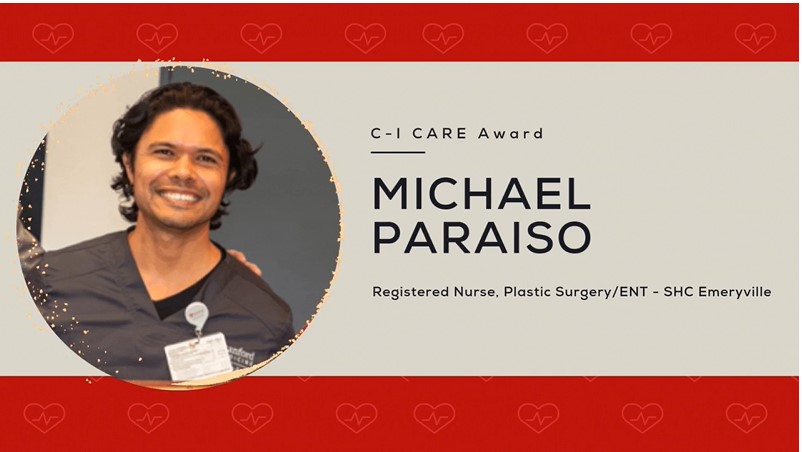
The March C-I-CARE Spotlight Service Award goes to Michael Paraiso, a clinical nurse II in the ear nose and throat (ENT) and plastic surgery departments in Emeryville. According to the nomination submitted by Jacqueline Mendoza, a patient care coordinator IV in the clinic, Paraiso demonstrated deep empathy when assisting an elderly patient traveling between Oakland and Palo Alto for her first radiation oncology appointment.
The Cantonese-speaking ENT patient had recently been diagnosed with cancer and was urgently referred to radiation oncology at Stanford Health Care in Palo Alto. The patient’s ENT doctor, Brian Nuyen, MD, emphasized the importance of having her start on a treatment plan with the radiation oncology team, but knew there may be challenges in getting her to Palo Alto. In response, Paraiso reached out to the patient to understand her situation and identify a solution.
“The patient was struggling with the idea of even going to Palo Alto to receive care for a number of reasons,” Paraiso said. “She has limited financial resources and family support, no smartphone, no transportation, and a language barrier. I thought of my own aging family members trying to get there and then getting overwhelmed.”
Paraiso worked with the patient on a plan and made sure that her journey to and from Palo Alto was as smooth as possible. He arranged a rideshare service for her, tracked it in real time and stayed connected with her through a Cantonese interpreter during the entire process, ensuring she knew exactly where to go.
“What stands out about Michael's actions is his understanding that good health care isn't just about medical treatment — it's about communication, kindness and genuine concern for patients' comfort and dignity,” Mendoza said. “By thinking ahead and creating solutions that kept the patient safe while respecting her independence, Michael showed how meaningful compassionate care can be.”
Paraiso encourages his colleagues to enhance their patient care skills by showing empathy and recognizing the barriers to health care. “We have tools to help remove those barriers, and it’s our responsibility to use them,” he said.
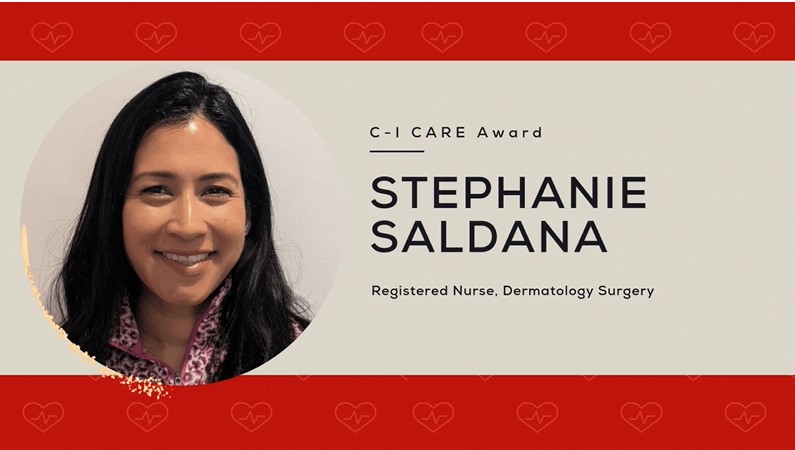
According to the nomination, submitted by Cassandra P, a patient administrative specialist III in dermatology surgery, a patient was recently having excision surgery for skin cancer. Saldana, a registered nurse in dermatology surgery in Redwood City, was responsible for his numbing procedure. While reviewing his profile, she noticed that he had dementia.
“When the patient was checking out, I overheard his confusion about getting a ride home,” Saldana said. “The receptionist had to help him make a call to set up a ride and repeatedly had to state our address to the patient. Also, he was confused on where the elevator was, so I got worried about how he would get downstairs and into his Uber ride, since it was made through a telephone call and not through his phone via an app.”
“Rather than simply observing, she recognized the vulnerability and the potential risks he faced,” Cassandra said. “Stephanie stepped in with gentle determination, followed him downstairs, patiently asked questions to understand his plans, and took it upon herself to ensure his safety.”
After waiting with the patient for several minutes and talking with the receptionist who helped him arrange his ride, Saldana was able to find the rideshare driver. The patient expressed his gratitude as he safely entered the correct vehicle and left for home. The situation spurred a conversation among clinic staff to implement a policy for discharging patients with dementia if they come to the clinic alone.
“Stephanie’s unwavering presence provided a beacon of security for a patient who needed an extra layer of support,” Cassandra said.
Saldana shared the following advice for colleagues on providing excellent patient care: “As health care workers, we are extremely busy with a million things to do during our shift, yet it is important to always be observant of context clues regarding patient safety. We have a responsibility to always try to do whatever humanly possible to take care of our patients from the moment they enter our clinic until they leave, with a safe discharge plan in place.”